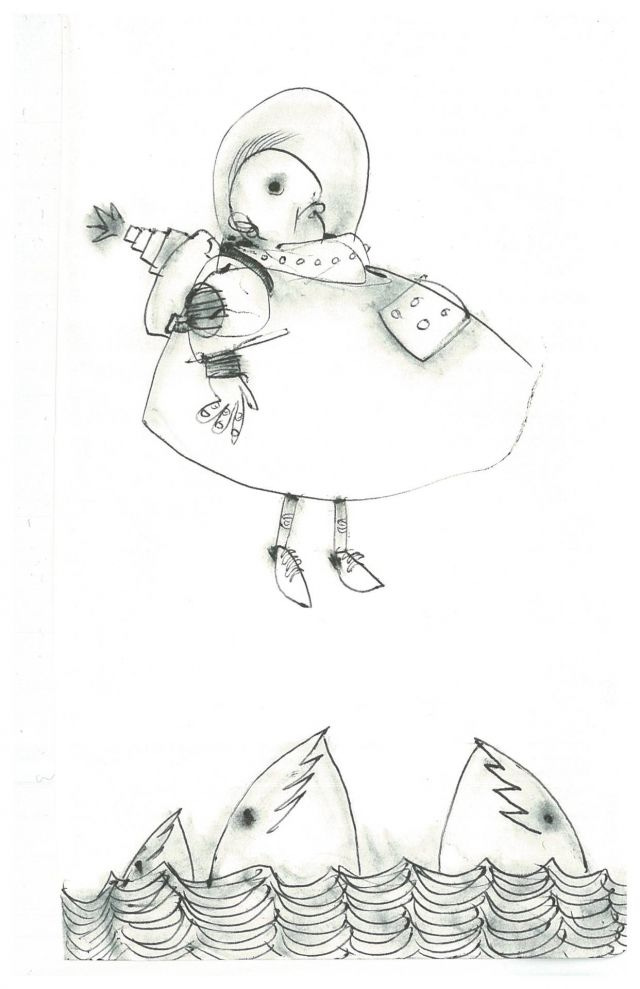Time Travel
Maddd Science

Dark is kind of like Stranger Things if it was way less interested in 80s pop culture and way more interested in how even time travel can't help a small-town community stop the cause-and-effect cycles that determine their pasts and futures. So it's not like Stranger Things, is what I'm saying.
I binged the German-language Netflix Original with a few family members last month, and if anything justifies the binge model, it's this one. You'll need to keep about two dozen characters straight across four generations and multiple time periods. It's worth it, even if I literally needed my sister to chart out the family trees by episode six.
Which might be why I love time travel stories: Just trying to understand the narrative becomes an interactive sport. It's like the opposite of historical fiction, which I'll get to in a second.
Netflix’s Dark is hard to watch, and impossible to stop watching
Tasha Robinson, The Verge
The answer to that first mystery comes by the series’ third episode, and it raises even more questions — about time travel, official and unofficial cover-ups, and the roles of various authority figures and outsiders. It also complicates the meaning of smaller mysteries scattered throughout the show, like the ornately carved box with the suicide victim’s last letter, which bears a warning not to open it until a specific date and time. There’s a fair bit of “What’s going on?” in Dark, but the more compelling mystery is “Who knows about it?”
This ostensible book review is actually a pretty great article by itself, but the book is a must-have for anyone obsessed with time travel.
The Foolish Errand of Time Travel
Colin Dickey, The New Republic
Among the more fascinating aspects of Gleick’s history of time travel is how new this obsession is. Prior to the nineteenth century, there were no time travel stories, no discussions of how and when it might be possible, no explorations of its possible benefits and paradoxes. ‘No one bothered with the future in 1516,’ Gleick notes. ‘It was indistinguishable from the present.’
Time travel stories tend to be obsessed with landing plot twists. The polar opposite genre, historical fiction, is instead more interested in presenting the history that its viewers expect is true rather than the one that actually is true, resulting in the flimsy core of boring sappiness that I fully expect out of any biopic I sit down to watch. ... Wow, sorry, I guess I might need to work out my anger with historical fiction in a less public space. In the meantime, here's an article that gets at part of why I dislike the genre:
The Lies of ‘The Crown’ and ‘The Post’
Peggy Noonan, The Wall Street Journal
There’s dramatic license, which is necessary or nothing’s fun, and historical truth, which is necessary or nothing’s understood. Ideally in any work they more or less coexist, however imperfectly. But in “The Crown” and “The Post” the balance is far off. A cheap historical mindlessness marks much of the first, and there’s a lie at the heart of the second.
This look at where Netflix's description blurbs come from is fascinating for both the actual facts and the personality that they're wrapped in.
What Netflix doesn’t want you to know about how its synopses are written
Ann-Derrick Gaillot, The Outline
Then Haas dropped a bomb: “As I'm sure you have noticed those don't always actually match the content of the film very well which is because they did not pay us well enough for us to actually watch the movies,” Haas said. “So we would write the synopsis based on what we found online. That could be kind of challenging.” Bingo, I thought. That’s what Netflix doesn’t want us to know. No, not the possibility that they pay their writers poorly, but the possibility that SYNOPSES WRITERS DO NOT WATCH THE FILMS. These synopses are based off other synopses, a feedback loop that would've given Baudrillard fits.
All the science fiction, fantasy, and horror books that everyone will be talking about in 2018
Andrew Liptak, The Verge
With a new year comes the promise of new books hitting bookstores. 2018 is shaping up to have plenty of adventures to delve into — taking readers to distant planets, fantastical realms, and beyond. We’ll meet some authors publishing their first-ever novels, and we’ll become reacquainted with familiar writers well into their careers.
Finally, something I wish I'd noticed in time for the end-of-year articles I featured last week: The year in book cover design.
Notable Book Covers of 2017
Dan Wagstaff, The Causal Optimist
As with the previous couple of years, the 2017 list is organized by covers (alphabetical by title), and by designer so that I can show a greater variety of work, and no one designer or studio dominates.
Next Week, on Maddd Science: Serialization
Header image: "Captain Anders couldn’t help thinking, what a terrible place and time to be sinking…," by Daniel Williams